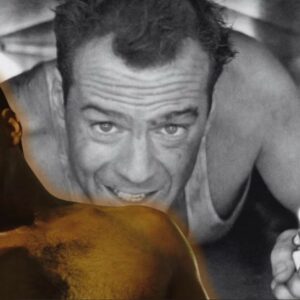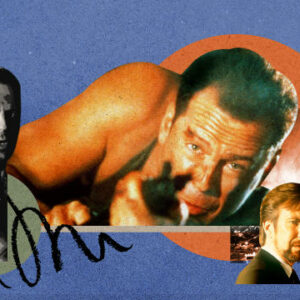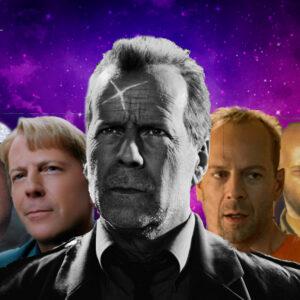Daniel Radcliffe’s rise to global fame is, without question, one of the most iconic in modern Hollywood. When he first appeared as the titular character in the Harry Potter film series, he was just eleven years old. Over the course of the eight films, he grew from a fresh-faced child star into one of the most talented and versatile actors of his generation. Yet, despite his massive success in the wizarding world, Radcliffe has continuously sought to stretch his craft far beyond the bounds of J.K. Rowling’s magical universe. His post-Potter career has been marked by a series of unexpected and daring roles, from the absurdist Swiss Army Man to the chilling thriller The Woman in Black. What sets him apart from many of his peers is his pragmatic and down-to-earth approach to acting. Unlike some actors who embrace the intense and often emotionally draining practice of method acting, Radcliffe takes a more balanced, mindful approach to his craft.
At the core of his philosophy lies the importance of separating work from personal life, an aspect of his professional life that Radcliffe feels is vital for his mental and emotional well-being. In this article, we’ll explore Radcliffe’s unique take on acting, his relationship with method acting, and his broader philosophy on how actors should approach their work without losing themselves in it.
What is Method Acting?
For those unfamiliar with the term, method acting refers to a specific style of acting that requires the actor to deeply immerse themselves in the character they are portraying. Originating from the teachings of Konstantin Stanislavski and later popularized by Lee Strasberg, method acting involves an intense emotional and psychological commitment to the role. Actors who follow this approach often stay “in character” at all times, even when the cameras are off, and may draw from personal experiences to evoke the emotions necessary for their performance. The goal is to make the portrayal as real and authentic as possible, often pushing actors to their emotional and physical limits.
Some of Hollywood’s most celebrated actors, such as Daniel Day-Lewis and Joaquin Phoenix, are known for their devotion to the method. These actors may stay in character for weeks, months, or even the entire filming process, immersing themselves so fully in their roles that the line between their true selves and their characters often becomes blurred. While this approach can result in some astonishing performances, it has also sparked debate about the psychological toll such immersion can have on actors.
Daniel Radcliffe’s Take on Method Acting
For Daniel Radcliffe, the intense approach that method acting demands is not something he feels compelled to follow. In interviews, Radcliffe has spoken openly about how he doesn’t subscribe to the traditional idea of staying in character at all costs. He’s not one to rehearse his lines while walking around in character off-screen or live the life of his character between takes. Instead, Radcliffe takes a more relaxed and practical approach to preparation. He believes that it’s essential for an actor to separate their work from their personal life.
In a 2016 interview with The New York Times, Radcliffe explained, “I’ve never been an actor who stays in character all the time. I don’t understand why you would want to do that, honestly. You can get so caught up in the process that it ends up becoming unhealthy.” This sentiment speaks to Radcliffe’s belief that actors should maintain a boundary between their roles and their personal identities. While it’s important to dive deeply into a character during the workday, Radcliffe makes it clear that the character should not consume him outside of the job. For Radcliffe, his mental health and personal life are just as important as his career.
Radcliffe’s Experience with Method Actors
Although Radcliffe himself does not embrace the most extreme aspects of method acting, he has worked alongside actors who do. In films like Swiss Army Man (2016), where he portrayed a man stranded on an island befriending a talking corpse (played by Paul Dano), Radcliffe worked with actors who are more inclined to follow method practices. In the case of Swiss Army Man, the directors, Daniels (Dan Kwan and Daniel Scheinert), encouraged a level of commitment from all actors, but Radcliffe himself maintained his ability to step outside of the role when the camera stopped rolling.
Despite this, Radcliffe acknowledges that it’s important to engage deeply with the emotional landscape of the character. In interviews, he has spoken about the preparation required to take on unusual and often surreal roles, noting that method actors can offer valuable insight into the psychological process of getting into character. However, he also underscores that it’s a personal choice to adopt such extreme practices, and it is not a path that he feels necessary to follow in order to give a strong performance.
In fact, Radcliffe credits his success in part to his ability to stay grounded and avoid the emotional toll that can come with losing oneself in a role. He has pointed out that while he has immense respect for actors who use method acting, he believes it can be mentally exhausting and has seen firsthand how it can take a heavy toll on a person’s emotional health. Radcliffe prefers to take what he calls a “calmer, healthier approach” to his craft.
Mental and Emotional Health: A Priority
Perhaps the most important part of Radcliffe’s philosophy is his emphasis on mental and emotional health. In his interviews, he has been candid about how some actors, particularly those who immerse themselves too deeply in their roles, can suffer from mental and emotional strain. Radcliffe himself has seen the toll that extreme methods can take on others and wants to make sure he is not subjecting himself to the same stresses.
When speaking about his own experience in the acting industry, Radcliffe explained in a 2020 Vulture interview, “You can’t just leave everything behind when you go home. If you are putting yourself through extreme emotional turmoil all the time, you’re not giving yourself the space to heal.” He firmly believes that the intense dedication required by method acting can often be psychologically dangerous, and he stresses the importance of leaving the role at the studio door.
This healthy balance is crucial for Radcliffe. His self-awareness of the potential harm that acting can have on an individual’s psyche has led him to pursue roles that allow him to engage fully with his craft without compromising his own well-being. Radcliffe makes time for self-care, which includes finding joy in activities outside of work and staying connected to loved ones.
Different Approaches in the Acting Industry
In the acting world, the debate between method acting and more relaxed techniques is ongoing. On one side, you have actors like Daniel Day-Lewis, who famously stayed in character as an obsessive butcher in There Will Be Blood for the duration of the film’s production. His commitment to his roles has earned him critical acclaim, but also raised questions about the emotional and psychological cost of such immersion. Joaquin Phoenix, known for his work in films like Joker (2019), has also been celebrated for his deep commitment to roles, often adopting the persona of his characters even when the cameras are not rolling.
On the other hand, there are actors like Radcliffe who believe that method acting’s intensity can be counterproductive. Radcliffe’s approach allows him to stay emotionally grounded while still delivering powerful performances. The ongoing debate in the industry revolves around whether method acting is truly the most effective way to achieve a rich, compelling performance, or whether it is a destructive practice that can harm an actor’s mental health.
Radcliffe’s Overall Philosophy on Acting
Ultimately, Radcliffe’s philosophy on acting is rooted in preparation, focus, and enjoyment. He believes that acting is about being ready to immerse yourself in a role while maintaining a sense of freedom and playfulness. In his own words, “It should be fun. It should be joyful. You should be able to laugh and feel light while you’re doing it, or else what’s the point?”
Radcliffe’s personal approach to acting challenges the traditional notion that actors must suffer for their art. He has become a role model for those who believe that balance is key to maintaining a healthy, long-lasting career in Hollywood. His dedication to finding joy in the process of acting, while maintaining emotional boundaries, provides a refreshing alternative to the tortured artist stereotype.
Conclusion
Daniel Radcliffe’s perspective on method acting is a testament to the idea that actors can approach their craft in diverse and healthy ways. While he respects the dedication of method actors, he doesn’t subscribe to the belief that one must lose themselves in a role to deliver a strong performance. His philosophy emphasizes the importance of separating work from personal life and making mental health a priority. As he continues to take on challenging roles, Radcliffe’s balanced approach serves as an inspiration to both aspiring actors and those in the entertainment industry at large, showing that it’s possible to be deeply committed to one’s craft while also maintaining a healthy sense of self.





